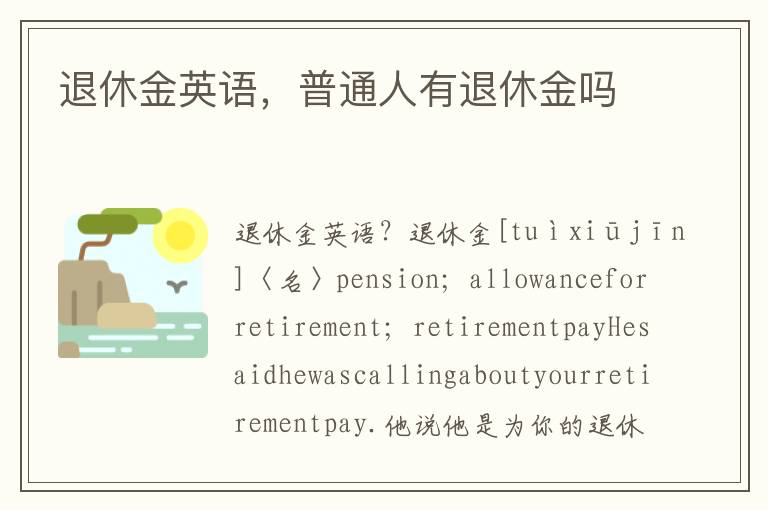【简介】感谢网友“雕龙文库”参与投稿,这里小编给大家分享一些,方便大家学习。
47. The primary responsibility for preventing environmental damage belongs to government, not to individuals or private industry.
Discuss the extent to which you agree or disagree with the opinion expressed above. Support your point of view with reasons and/or examples from your own experience, observations, or reading.
The responsibility for preventing environmental damage should be shared by government, private industry and individuals alike. The primary obligation, however, belongs to individuals. Moreover, within organizations like the government or a corporation, responsibility should be increasingly distributed to individuals according to level of authority.
The primary obligation to preserve the environment belongs to individuals for the reason that assigning responsibility to a government or corporation is problematic. This is because abstract entities like these do not fulfill the usual criteria for being responsible. An entity can shoulder responsibility only if it can be held accountable for its actions. Furthermore, being held accountable for an action requires that the entity act willingly and on the basis of conscious intentions. But governments and businesses are abstractions, having neither will nor consciousness beyond that of the individuals within them.
Still, we can make some sense of treating corporations and governments as if they were individuals. They are individuals under the law, and therefore subject to laws, penalties, and lawsuits. They can even be identified as beneficiaries in wills. Nevertheless, when responsibility is vaguely allocated to abstract entities like governments or corporations, it becomes easy for those within such organizations to cover individual actions that result in devastation to the environment. Consider the famous case of the Exxon Valdez accident and oil spill off the Alaskan coast. While it was easy to single out Captain Hazelwood and determine his blameworthiness the night of the mishap, it was not so easy to identify those responsible at higher levels. Someone was responsible for hiring Hazelwood; others should have known about his drinking or other job-related problems. Thus when we do assign responsibility to governments or business organizations, it must be clearly distributed to individuals in relevant lines of authority within the organization.
In conclusion, individuals are mainly responsible for protecting the environment. And while it makes some sense in a vague way to talk about the similar responsibilities of government and industry, in the end such obligations will belong to individuals within them. Therefore, some individuals will assume greater shares of responsibility for the environment, since they act in positions of authority on behalf of government or industry.
47. The primary responsibility for preventing environmental damage belongs to government, not to individuals or private industry.
Discuss the extent to which you agree or disagree with the opinion expressed above. Support your point of view with reasons and/or examples from your own experience, observations, or reading.
The responsibility for preventing environmental damage should be shared by government, private industry and individuals alike. The primary obligation, however, belongs to individuals. Moreover, within organizations like the government or a corporation, responsibility should be increasingly distributed to individuals according to level of authority.
The primary obligation to preserve the environment belongs to individuals for the reason that assigning responsibility to a government or corporation is problematic. This is because abstract entities like these do not fulfill the usual criteria for being responsible. An entity can shoulder responsibility only if it can be held accountable for its actions. Furthermore, being held accountable for an action requires that the entity act willingly and on the basis of conscious intentions. But governments and businesses are abstractions, having neither will nor consciousness beyond that of the individuals within them.
Still, we can make some sense of treating corporations and governments as if they were individuals. They are individuals under the law, and therefore subject to laws, penalties, and lawsuits. They can even be identified as beneficiaries in wills. Nevertheless, when responsibility is vaguely allocated to abstract entities like governments or corporations, it becomes easy for those within such organizations to cover individual actions that result in devastation to the environment. Consider the famous case of the Exxon Valdez accident and oil spill off the Alaskan coast. While it was easy to single out Captain Hazelwood and determine his blameworthiness the night of the mishap, it was not so easy to identify those responsible at higher levels. Someone was responsible for hiring Hazelwood; others should have known about his drinking or other job-related problems. Thus when we do assign responsibility to governments or business organizations, it must be clearly distributed to individuals in relevant lines of authority within the organization.
In conclusion, individuals are mainly responsible for protecting the environment. And while it makes some sense in a vague way to talk about the similar responsibilities of government and industry, in the end such obligations will belong to individuals within them. Therefore, some individuals will assume greater shares of responsibility for the environment, since they act in positions of authority on behalf of government or industry.





![音标[v]的发音-李阳标准美语发音及口语教程第30讲](http://zixueku.oss-cn-beijing.aliyuncs.com/peitu/xiezuo/xinzuo-26.jpg)


